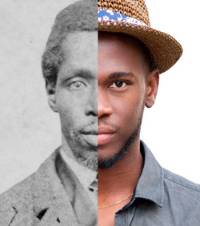Identity: Knowing the Past to Build Your Future
"Know from whence you came. If you know whence you came, there are absolutely no limitations to where you can go."
-James Baldwin, African American novelist, essayist, playwright, poet, and social critic.

In collaboration with the Pepperdine University Graduate School of Education and Psychology Diversity Council, and in celebration of Black History Month, the February Distinguished Lecture Series event will focus on The Freedmen's Bureau Project and the work happening locally at Pepperdine, as well as globally, to help African Americans reconnect with their Civil War-era ancestors.
The Freedmen's Bureau was formed by an Act of Congress on March 3, 1865, to assist
newly freed slaves and poor whites who had been left in need by the Civil War. The
Smithsonian National Museum of African American History and Culture; the Afro-American
Historical and Genealogical Society; and the California African American Museum, together
with Family Search, the genealogical arm of The Church of Jesus Christ of Latter-Day
Saints, digitized 1.5 million handwritten records containing 4 million names from
the Freedman's Bureau. These records are now being indexed to allow anyone to research
their past.
The panel of experts will discuss why these records are important to all people, not
just African Americans, what these records mean to those who are finding clues about
family they never knew before, and what are the psychological, relational, and contextual
aspects of self-identity.
Panelist will include Matthew Ball, director of public affairs, North America West,
The Church of Jesus Christ of Latter-Day Saints; Thom Reed, senior marketing manager,
Family Search International, the largest genealogy organization in the world; and
Dr. Carolyn Keatinge, senior lecturer, psychology division, Graduate School of Education
and Psychology.